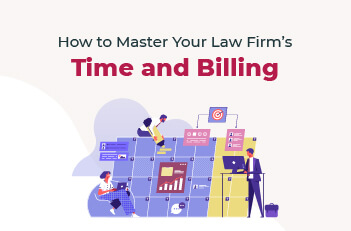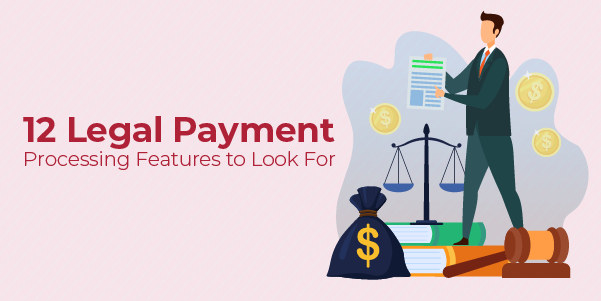To Surcharge or Not to Surcharge? We’re Here to Help Answer that Question.

Offering credit card payments helps your law firm get paid faster and increases client convenience.
But that convenience can come with a price tag. Credit card fees can range from 2–5%, which can take a whopping $500 out of a $10,000 invoice. For small and medium-sized firms, in particular, these fees can sting.
One strategy for lessening the pain of credit card fees is passing on per-transaction credit card processing fees to your customers by using a process known as surcharging. Surcharging can protect your revenue while still offering your clients much-appreciated convenience.
Before you start updating your payment policies, though, a word of wisdom: carefully assess whether this strategy is right for your practice. Here are some of the pros and cons that impact your surcharging decisions.
What’s surcharging?
Surcharging is the process of passing along credit card processing fees from your legal practice to your clients. This fee is charged at the time of payment.
Convenience fees and surcharges are similar but with one key difference: convenience fees apply to any form of online payment, whether credit, debit, or eCheck, while surcharges apply to credit cards only.
How much does surcharging cost?
Surcharging is a percentage of the total cost paid by the client. Typically, the costs for the client are somewhere between 2–5%.
What to consider when considering surcharging: pros and cons
Any change to your law firm’s payment practices should involve thoughtful deliberation. You should weigh the benefits to your firm and clients while also looking at the potential short- and long-term ramifications.
Payment practices are at particular risk for compliance missteps, client frustrations, and tricky workflows. Yet the upshot of improving your payment policies is significant: improved satisfaction and increased revenue.
How do these risks and benefits apply to surcharging? Let’s discuss.
1. State rules vary
The key here is to check your state bar rules and, in some cases, your local bar associations. These rules may change with the emergence of new legislation or court cases.
Some states prohibit surcharging entirely: Massachusetts, Maine, Connecticut, and Puerto Rico. Other states have restrictions—but not a prohibition—on surcharging. States with special rules are: Colorado, Connecticut, Florida, Kansas, Maine, Massachusetts, New York, Oklahoma, and Texas.
Allowing surcharges isn’t a “green means go” approval, though. As an example, look at New York. An ethics opinion by the New York State Bar Association states:
“A lawyer may pass on a merchant processing fee to clients who pay for legal services by credit card provided that both the amount of the legal fee and the amount of the processing fee are reasonable, and provided that the lawyer has explained to the client and obtained client consent to the additional charge in advance.”
The short version: the surcharging fee has to be reasonable and provided in advance (more notice is better than less), and law firms must obtain consent for the additional charge in advance.
The takeaway here is that law firms need to outline what is expected of them. Law firms that may operate in multiple jurisdictions may need multiple policies (and supporting workflows) in place to stay on the right side of compliance.
2. Make sure your client understands
You always want your firm’s clients to understand what they’re being charged, and surcharging is no exception. Long before you send them a bill, you should inform clients about the option for surcharging, what it means, and how it works, along with payment terms and invoice timelines.
One client-friendly way to do this is by providing a sample bill showing them the line item of the surcharge (note that Rocket Matter Pay takes care of separating out your surcharges on line items). A sample bill helps them visualize the expense without the stress of seeing it on their own invoice.
3. Advise the credit card companies
Let your card networks and payment solution providers know that you’re going to surcharge. Before you start implementing surcharges, you must give credit card providers at least 30 days’ notice that you plan to begin surcharging your clients.
Note that each credit card company has its own rules for surcharging, so be sure to read up on these rules and resolve any issues that may interfere with your ability to offer surcharging.
4. Set the proper amount
According to the Dodd-Frank Act of 2010, merchants can only charge a surcharge that covers the cost of accepting credit card payments, not more. This means that you can't make a profit from surcharging your customers.
To determine the proper amount for your surcharges, consider the following:
- Interchange fees: These are fees charged by credit card networks like Visa or Mastercard to process transactions. They usually range from 1–3% of the transaction amount.
- Processing fees: These are fees charged by your payment processor for handling transactions. They can vary depending on the provider and type of transaction, so make sure to carefully review your processing fees.
- Fraud protection costs: Credit card payments come with a risk of fraud, which can cost merchants money. Factor in the cost of fraud protection measures when calculating your surcharge amount.
Changes in interchange fees or processing fees can impact your surcharges, so stay up-to-date and adjust accordingly. Working with a legal-specific payment processor can help streamline this entire process.
5. You can’t apply a surcharge on debit cards
Surcharge fees are specifically limited to credit card transactions only. Even if a client prefers to process a signature debit transaction, where a debit card is treated as a credit transaction, implementing a surcharge is still prohibited.
It's worth mentioning that surcharges cannot be applied to prepaid cards, either.
In these cases, make sure your online payment processor can automatically detect debit cards and avoid applying surcharges.
Cover all your surcharging options with Rocket Matter Pay
As a small- or medium-sized law firm, you want to offer the convenience of credit card payments for clients, but it can sometimes be too much to bear a 5% cut on a payment. Luckily, surcharging—which is allowed in most states—is an easy, transparent option to recoup that processing fee.
Surcharging takes a bit of preparation, though, including checking your state rules, advising clients in advance, notifying credit card companies, and picking a legal-specific payment processor that makes the whole process easy.
That’s where Rocket Matter Pay comes in. To see how surcharging made simple can help your firm increase revenue and stay compliant, start a free trial or schedule a demo of Rocket Matter today.
Related Resources

How to Increase Your Profits with Rocket Matter
Lawyers in firms of all sizes struggle to finish the work for the day in a reasonable amount of time. With document creation, non-billable tasks, and time spent following up with current and potential clients, the workday quickly turns from a planned eight-hour day into a twelve-hour one.

How to Master Your Law Firm’s Time and Billing
Lawyers have a heavy workload. With so many clients and their various needs, it’s easy to put tedious administrative tasks like time tracking and billing on the back burner.

6 Billing Strategies to Grow Your Law Firm
Scaling your law firm doesn’t just mean adding more lawyers or increasing your number of clients. The best way to boost your law firm’s finances is to minimize your non-billable hours and make sure that every hour of your day is accounted for.
Share post:









